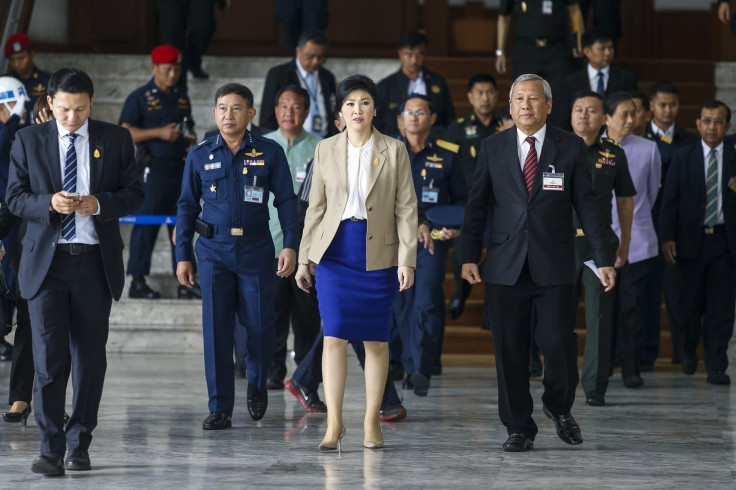Thailand Prime Minister Yingluck Shinawatra Gave A Miss To Anti-Corruption Panel Hearing, Sent Lawyers Instead; Pro-Government Protesters Guarded NACC Building, Chained Gates

Thailand Prime Minister Yingluck Shinawatra skipped an anti-corruption panel hearing Thursday and instead sent her lawyers to face charges leveled against her of negligence and corruption on a rice-subsidy program. If found guilty, it could lead to her ejection from office and a five-year ban from politics.
Amid a four-month long protest in the country demanding her removal from the post, the National Anti-Corruption Commission, or the NACC, had filed charges against Yingluck claiming that she had ignored warnings that the rice-subsidy scheme was encouraging corruption and leading to financial losses.
"After hearing the charges, we will study them and then respond to the NACC within 15 days," Pichit Chuenban, the head of Yingluck's Pheu Thai Party, told Associated Press.
Yingluck has reportedly flown to the city of Chiang Rai in northern Thailand where she has a strong support base to inspect government-backed projects there. Meanwhile, pro-government protesters surrounded the NACC office and chained the gates to prevent officials from entering, according to news reports.
Yingluck has maintained that she is innocent and that she is “willing to cooperate to establish the facts.” However, her opponents accuse her of being a pawn in the hands of her brother, Thaksin Shinawatra, who has fled the city after facing corruption charges and is currently living in Dubai.
The rice-subsidy program, which has got the NACC’s attention, was earlier promoted by Thaksin. Yingluck’s government continued the scheme and bought grains from farmers at prices above the market rate, incurring losses of about $4.46 billion for the government. Rice farmers began a fresh rebellion against Yingluck’s administration last week after the government failed to pay them fully for the foodgrains, and now owes them 110 billion baht ($3.39 billion).
Yingluck had called for an election on Feb. 2, but it was disrupted by the opposition party and protesters. Some of Yingluck’s supporters say that the NACC's hearing is a ploy to overthrow the government.
"These are elaborate plans to overthrow the government without actually staging a physical coup," Verapat Pariyawong, a Harvard-educated lawyer and political commentator, told Agence France-Presse.
© Copyright IBTimes 2024. All rights reserved.





















